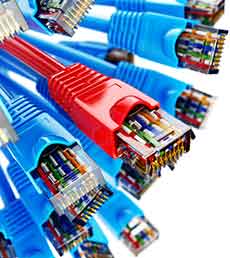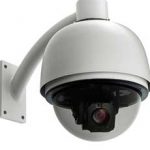Intercom and paging systems play a vital role in modern businesses, schools, hospitals, and other facilities, providing a convenient and efficient way to communicate with employees, students, staff members, and visitors. Over the years, intercom/paging systems have evolved from simple analog communication devices to more sophisticated digital and IP-based systems that offer numerous features and benefits. However, many organizations still rely on outdated and inefficient systems that may be limiting their communication capabilities.
This comprehensive guide will discuss the importance of intercom/paging systems, the signs that it may be time to upgrade, and the various factors to consider when choosing a new system. With the rapid advancements in communication technology, upgrading your intercom/paging system can significantly improve your organization’s communication capabilities and overall efficiency.
The Importance of Intercom/Paging Systems
Efficient Communication
Intercom/paging systems are crucial for effective communication within an organization. They allow for instant transmission of important messages or announcements to targeted groups or the entire facility, ensuring that everyone is informed and coordinated. This is particularly important in emergency situations when quick action is required.
Safety and Security
A modern intercom/paging system can enhance the safety and security of a facility by enabling swift communication between different departments, personnel, and security personnel. In case of an emergency or security threat, the system can be used to broadcast critical information and instructions, ensuring that everyone remains safe and well-informed.
Enhanced Productivity
Efficient communication is a key factor in improving productivity in any organization. With a reliable and advanced intercom/paging system, employees can easily communicate with one another, share information, and collaborate on projects, leading to increased efficiency and effectiveness.
Signs That It’s Time to Upgrade Your Intercom/Paging System
Outdated Technology
If your current intercom/paging system is based on outdated analog technology, it may be time for an upgrade. Analog systems often have limited functionality, inferior audio quality, and are more susceptible to interference compared to digital or IP-based systems. Upgrading to a more advanced system can provide numerous benefits, including improved audio quality, increased reliability, and better integration with other communication systems.
Poor Audio Quality
One of the most common issues with older intercom/paging systems is poor audio quality, which can lead to misunderstandings, miscommunication, and frustration. If your system frequently experiences audio issues such as static, interference, or low volume, it may be time to consider an upgrade.
Limited Coverage
If your current intercom/paging system does not provide adequate coverage throughout your facility, it may be time for an upgrade. Modern systems offer greater coverage and can be easily expanded to accommodate additional areas or buildings, ensuring that everyone within your organization can communicate effectively.
Difficulty in Maintenance and Repair
Older intercom/paging systems may require frequent maintenance and repairs, which can be both time-consuming and costly. If your organization is spending an excessive amount of time and resources on system maintenance, it may be more cost-effective to invest in a new, more reliable system.
Incompatibility with Other Communication Systems
In today’s interconnected world, it’s essential for communication systems to be compatible and easily integrated with other devices and platforms. If your current intercom/paging system is not compatible with your organization’s other communication systems (such as VoIP, video conferencing, or access control), upgrading to a more versatile system can greatly improve communication and collaboration.
Factors to Consider When Upgrading Your Intercom/Paging System
Type of System
There are several types of intercom/paging systems available, including analog, digital, and IP-based systems. Each has its own advantages and disadvantages, so it’s important to carefully consider which type of system best suits your organization’s needs and requirements.
Analog systems, while less expensive, have limited functionality and may not offer the best audio quality. Digital systems, on the other hand, provide improved audio quality, better reliability, and more advanced features compared to analog systems. IP-based systems offer the greatest flexibility and scalability, allowing for easy integration with other communication platforms and the ability to expand the system as your organization grows.
Cost
When planning to upgrade your intercom/paging system, it’s important to consider the total cost of ownership, which includes not only the initial cost of the system but also any ongoing maintenance, repair, and upgrade expenses. Be sure to compare different systems and providers to find the best value for your organization.
Ease of Installation and Integration
Choose a system that is easy to install and integrate with your existing infrastructure. This will minimize downtime during the installation process and ensure a smooth transition to the new system. Additionally, look for a system that can be easily integrated with your organization’s other communication platforms, such as video conferencing, access control, and VoIP.
Scalability
As your organization grows, your communication needs may also change. Look for a system that can be easily expanded or upgraded to accommodate new areas, buildings, or features. IP-based systems are typically the most scalable option, allowing for easy integration of new components and expansion of the system as needed.
Audio Quality
Audio quality is a critical factor in the effectiveness of an intercom/paging system. Poor audio quality can lead to miscommunication, frustration, and decreased productivity. When evaluating different systems, make sure to test the audio quality to ensure it meets your organization’s standards.
Security and Privacy
As communication technologies advance, so do the potential security risks. When upgrading your intercom/paging system, consider the security and privacy features offered by the system, such as encryption, access controls, and secure data storage. Protecting your organization’s communications is crucial for maintaining privacy and preventing unauthorized access.
Support and Maintenance
Lastly, consider the support and maintenance services offered by the system provider. A reliable and responsive support team can help troubleshoot any issues that arise, minimizing downtime and keeping your system running smoothly. Additionally, look for a provider that offers regular software updates and system maintenance to ensure your intercom/paging system stays up to date and continues to function optimally.
Upgrading your intercom/paging system can greatly improve your organization’s communication capabilities, enhance productivity, and ensure the safety and security of your facility. By recognizing the signs that it’s time to upgrade and carefully considering the various factors involved in choosing a new system, you can make an informed decision that will benefit your organization for years to come.


